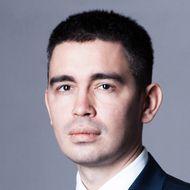Globalization Endures: Global Trade and the Economy Are Showing Signs of Recovery

The global economy’s pace of recovery after the pandemic largely depends on whether consumers will return to a hedonic style of consumption. At the XXII April International Academic Conference, organized by the HSE and Sberbank, the HSE School of World Economy held a round table ‘The World Economy in the Context of the Coronavirus Pandemic’.
A large-scale injection of money saved the global economy from a rare fall and led to paradoxical consequences — an increase in stock prices and real estate prices during a recession. This feature of the current crisis is explained by the fact that the incomes of the wealthiest strata of the population have decreased slightly, and sharply reduced consumption has led to an increase in savings. The money saved on consumption partly ended up in the stock markets and the real estate market. In the future, the savings accrued during the pandemic year may largely become the basis for further recovery.
Such were the observations and conclusions laid out by Professor Leonid Grigoryev, academic supervisor of the School of World Economy of HSE University. He presented a report prepared by the School’s staff entitled ‘Pandemic Shock: Rebuilding the Population’s Personal Consumption and Lifestyle during the Pandemic and Recession’.

Leonid Grigoryev
Consumption trends vary significantly: in most countries, purchases of consumer goods reached 95% of the pre-crisis level, and in the United States, the demand for purchases of durable goods, especially for leisure purposes, has significantly increased, he says.
The rate of recovery is highly dependent on whether the habits developed while living in isolation take hold or people return to hedonic consumption.
Leonid Grigoryev is optimistic about consumption. ‘Purchases of durable goods have increased, and automobile purchases in many countries have increased. It cannot be said that everything has stopped.’
According to IMF forecasts, China and the United States will emerge from the crisis quickly, while the recovery of Europe, especially in countries with a developed tourism sector, will be delayed, particularly due to delays in vaccination rollouts. Leonid Grigoriev stressed that statistics on low-income groups of the population, migrants, and national minorities are not enough. At the same time, ‘poverty is forgotten, everyone is focused on the green dream, and few are discussing health care reform.’
Marcel Salikhov, president of the Institute for Energy and Finance Foundation and director of the Centre for Economic Expert Analysis of the Institute for Public Administration and Governance of HSE University, noted that massive support for the economy has led to an increase in government debt. In the US, the debt has reached 130% of GDP, despite the fact that in the wake of the 2008-09 crisis the critical level was considered to be 90%. The level of corporate debt has also increased. The expert noted increased inflation as a possible scenario, since inflation expectations have grown significantly. Due to the inflationary expectations, a significant rise in raw material prices, including oil and grain, is possible. At the same time, there is no reason to expect a serious expansion of demand for commodities.

Marcel Salikhov
Marcel Salikhov suggests that the announced goals of decarbonization and the movement towards neutrality of many industrial technologies does not mean that the economy will move away from oil and gas consumption in the coming years. Nevertheless, the peak of demand for oil has already passed or will be passed in the next 5 years.
The oil market is stagnating, and the decline in oil consumption may be faster than it appears now
Director of INION RAS Alexey Kuznetsov spoke about the impact of the pandemic on foreign direct investment (FDI). It has decreased by a third compared to 2019, and the decline turned out to be greater than in 2008-2009. Moreover, FDI exports from EU countries are four times lower than previous levels and exports from developed countries are twice as lower. The countries of the Asia-Pacific Basin, however, turned out to be more successful in this respect. In particular, the inflow of investments to India and China increased slightly. As a result, the positions of China and other countries of Pacific Asia in the FDI market should strengthen with a weakening of investment flows to the underdeveloped countries of the ‘global south’.

Alexey Kuznetsov
Investors will become more prudent when buying businesses, hotels, and other organizations in the service sector, Alexey Kuznetsov suggests. The strengthening of individual countries will allow companies to use the crisis to buy distressed assets and it will provide room for manoeuvre for sovereign wealth funds and hedge funds.
The crisis led to a decline in investment in the vast majority of sectors of the economy—even in healthcare and education. The exception to this was renewable energy sources. At the same time, no significant changes took place in Russia: the country did not become an exporter of capital, nor did it experience an exodus of capital to other countries.
A long-term trend in the future may be an increase in investments in sustainable development goals. Unlike the previous period, when mainly states and non-profit organizations invested in them, these investments became commercial. By financing infrastructure, green technology, or buying land and running sustainable agriculture, companies are trying to show that they care about achieving sustainable development goals.
Igor Makarov, head of the HSE School of World Economy, spoke about the impact of the crisis on world trade. The blow it dealt to trade turned out to be less damaging than was anticipated at the beginning of the pandemic, when forecasts warned of a decline of 9% to 30%. In 2020, trade volumes decreased by 5.3%, which is less than in 2008-2009, when there was a decline of 10%.
Large support packages that have allowed consumption to be maintained, including for the poor, have yielded relatively favourable results
At the same time, China's rapid recovery has enabled a rapid recovery of supplies from leading exporters. Most of all, according to Igor Makarov, trade in fuel declined, while a smaller decline was observed in the trade of products and goods of daily demand.

Igor Makarov
The crisis initially prompted a push to accelerate and localize value chains to achieve greater security and eliminate possible supply disruptions. However, this trend did not gain momentum, since it soon became clear that localization reduces efficiency and increases the risk of monopolization or oligopolization of supplies, creating the need to maintain excess capacity. Value chains have survived, but their reorientation and geographic redistribution are possible in the future.
Long-term stagnation factors persist, and income convergence continues, which reduces the possibilities for the international division of labour. In addition, the availability of skilled labour in a number of developing countries and the development of robotization reduces the efficiency of locating production in countries with cheap labour. Systemic contradictions between China and the United States may affect trade, since the former is gradually refusing to stimulate exports, but anti-crisis packages in many countries are leading to an increase in imbalances and are increasing the volume of world trade, says Makarov. ‘The pandemic did not kill trade; the patient is more likely alive than dead and showing signs of recovery,’ Makarov concluded.
The XXII April International Academic Conference on Economics and Social Development will be held from April 13 to 30, 2021. For the first time, the conference is co-organized by HSE University and Sberbank. The programme includes a series of academic and expert discussions that will be held as part of the HSE-Sberbank Discussion Club – an expert platform that brings together academics, business representatives, and public officials to discuss critical economic and social challenges and share best practices in the sphere of business and institutional development, thereby laying out a path to the future.
See also:
24 Countries Represented at 25th Yasin International Academic Conference Held by HSE University
The Programme Committee of the 25th Yasin (April) International Academic Conference on Economic and Social Development has summed up the initial results. In 2025, 1,384 people from 24 countries and 29 Russian regions participated in the conference, with 335 of them delivering presentations.
Stuck in the Net: How Much Time Children Spend Online
On average, a schoolchild spends 48 hours a week on studies—equivalent to a six-day working week for an adult. This was highlighted by experts at the round table ‘Domains of Children’s Well-Being Evaluation for Human Potential and Evidence-Based Social Policy Development,’ held as part of the 25th Yasin (April) International Academic Conference.
Russian and Chinese Scholars Share Experience of Transformation of Doctoral Education
The Russian and Chinese postgraduate education systems originally borrowed their institutional frameworks from the Soviet Union. However, in the 21st century, they have evolved along different paths. While key performance indicators for postgraduate programmes in Russia are declining, China is seeing a rapid increase in the number of postgraduate students. These contrasting trajectories and the reforms undertaken in each country in recent decades were the focus of a roundtable discussion held as part of the 25th Yasin (April) International Academic Conference.
Nobel Laureate Proposes Solution to Markov Equilibrium Problem
In dynamic games, a Markov equilibrium involves strategies that guide players' behaviour based on the current state of the game, rather than its entire history. This approach is effective when players have access to complete information. But when uncertainty arises in the game—for instance, when players are unsure of who they are dealing with—this approach can become problematic. Eric Maskin, Nobel Laureate in Economics and Professor at Harvard University, addressed this issue in a paper presented at the XXV Yasin (April) International Academic Conference on Economic and Social Development held at HSE University from April 15 to 18, 2025.
‘The World Is Becoming More Complex and Less Predictable’: What Scientists Say about the Future
The future is now more difficult for researchers to forecast, and events that are hard to predict are playing an increasingly significant role. But there is good news too: scientists are confident that humanity will adapt to any changes. This was the focus of discussion at the International Symposium ‘Foresight in a Rapidly Changing World,’ which took place as part of the 25th Yasin (April) International Academic Conference.
Fragmentation and Bloc Formation: How the Global Economy is Changing
Sergey Dubinin, former head of the Bank of Russia and Professor of Finance and Credit at the Faculty of Economics at Moscow State University, has delivered an honorary address at the XXV Yasin (April) International Academic Conference. He spoke about the transformation of the global monetary and financial system, as well as the Russian economy.
More Children, More Happiness: HSE Experts Study Impact of Number of Children on Russians' Assessment of Happiness
Russians with children feel happier than those without children. At the same time, the number of children influences the assessment of happiness: the more children Russians have, the happier they feel. These conclusions were outlined inthe report ‘More Children, More Happiness: The Impact of the Number of Children on Russians’ Assessment of Happiness,’ presented at the XXV Yasin (April) International Academic Conference on Economic and Social Development, held on April 15–18 at HSE University. The study was conducted by Elena Churilova, Senior Research Fellow, and Dmitry Jdanov, Chief Research Fellowat HSE International Laboratory for Population and Health.
HSE Expands Cooperation with Gulf Countries
HSE University and the Centre for International Policy Research (Qatar) have agreed to collaborate in the field of social sciences, with plans for joint research, academic exchanges, and regular expert engagement. The agreement was signed during the roundtable ‘State Capacity and State Resilience in the Global South,’ held as part of the 25th Yasin (April) International Academic Conference at HSE University.
‘We Grow Old before We Become Rich’: How BRICS Countries Can Achieve Economic Growth
Due to population aging, many countries aiming for economic prosperity have limited time left to undergo economic transformation, according to the honorary report Narratives Versus Reality on Employment and Demography: How Undermining Institutions Can Push Countries Out of the ‘Narrow Corridor’ by Santosh Mehrotra of the University of Bath. The report was presented at the XXV Yasin (April) International Academic Conference.
XXV Yasin (April) Academic Conference Kicks Off at HSE University
The anniversary 25th Yasin (April) International Academic Conference on Economic and Social Development will take place from April 15 to 18. This year, over a thousand applications were submitted to present at the conference, of which the Programme Committee selected 381 of the best research papers in their respective fields.


